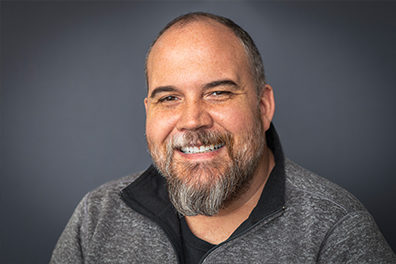Dan Edwards’ Three Minute Thesis
When Public Health meets Criminal Justice Reform
A quantitative portion of this study will focus on a new means of measuring implicit bias in the criminal justice system. Using a combination of high-speed cameras, the Harvard Implicit Association Test, and high definition imaging of different racial and ethnic minorities during a simulated law enforcement encounter I will be monitoring for minute changes in an officer’s expression to quantify a new measurement of implicit bias. Once this data is verified it can then be used as a tool to develop a new interventional training modality that will help shift individuals away from their various implicit bias.
A qualitative portion of this study will be conducted to focus on the impact implicit bias has on the public health in the African American community. An ethnographic study will be done to measure to the cultural variances of both law enforcement and the African American communities in which they serve, seeking a better understanding and interpretation of the underlying behavior that has led to the apparent implicit bias noted in multiple retrospective cohort

His career as a clinical Emergency Room nurse was cut short when he was run over by truck in the parking lot at a gas station, suffering a disabling traumatic brain injury. Months of rehabilitation and therapy passed, and he discovered a new-found passion for teaching and academics. He earned his bachelor’s degree, then his master’s degree (Nursing Education) while recovering from the initial stages of his TBI, only to realize that his passion for learning and knowledge would not abate. He was encouraged to apply for a PhD at WSU after corresponding with a professor in the School of Nursing. He hopes to continue to work in research and education after completing his degree.
